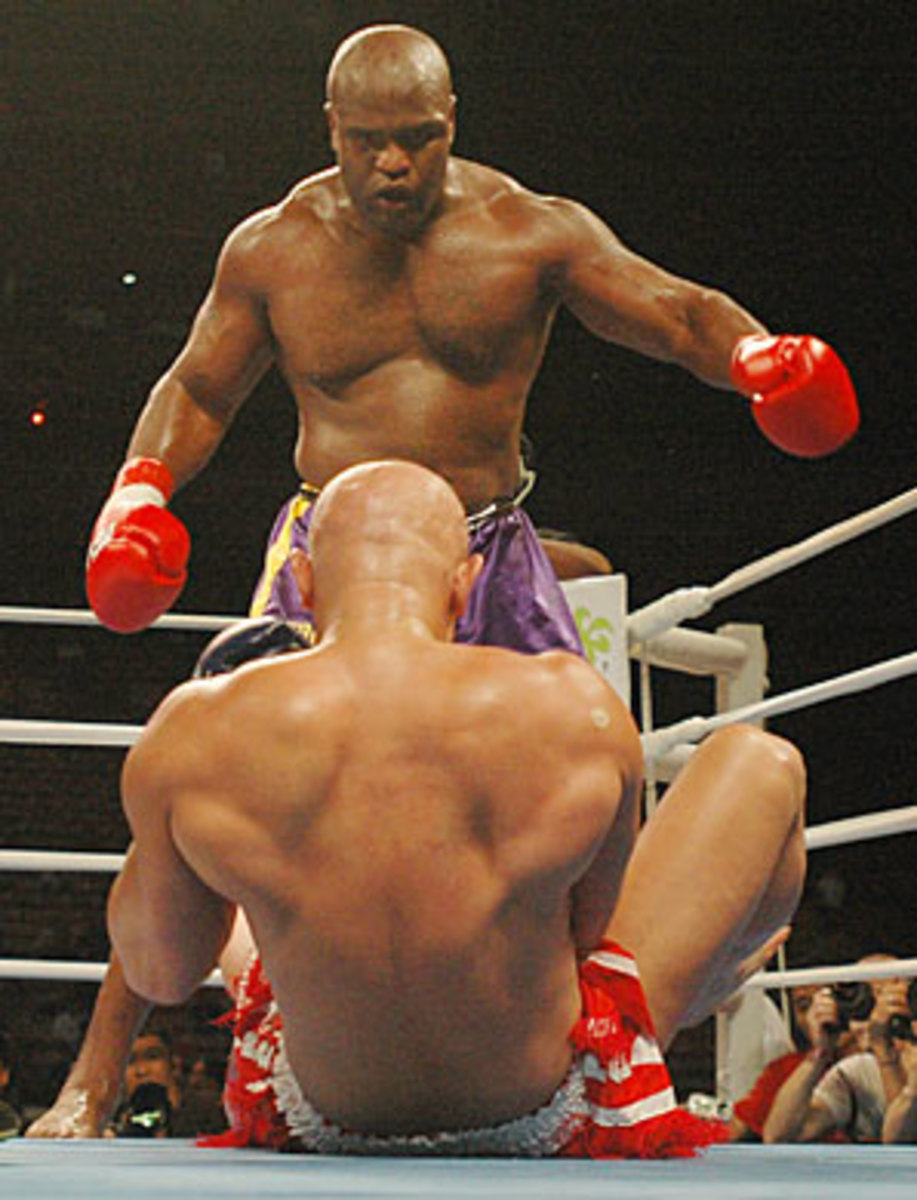
MMA pioneer Goodridge still fighting for a living at age 44
Gary Goodridge keeps meaning to get out of the fight game. He'll be 44 years old in a couple of weeks. He's tired of getting punched in the face. He's tired of being jerked around by promoters, living one fight to the next. He's been trying to find a job, maybe something in security or protection, but it's not easy in this economy, he says.
His resume has 14 years worth of pro fights. What it doesn't have is a ton of practical work experience.
So when he got a call at home in Barrie, Ont., a few days before New Year's Eve, asking if he'd like to come to Tokyo and fight one of the world's best young light heavyweight prospects on less than a week's notice, he didn't need to think about his answer. He hung up the phone and got on a plane. Because everybody's got to eat somehow, and because for the past 14 years he's only known one way to make a living.
"I was going broke looking for a job," said Goodridge. "I got a load of bills that need paying. When I got the call I thought, 'Thank God.' Now I can pay some bills."
He spent exactly one minute and 34 seconds in the ring against Strikeforce 205-pound champ Gegard Mousasi. A quick takedown followed by some perfunctory ground-and-pound was enough for the referee to wave it off, handing Goodridge his sixth straight loss.
"Personally I thought the fight was stopped a little early, but maybe they were looking out for the old man," he said. "Who knows."
It wasn't the first time Goodridge had stepped in on short notice. When Aleksander Emelianenko was pulled from the first Affliction event the day before the fight, it was Goodridge who showed up to go three hard rounds against Paul Buentello, looking for all the world like he'd had a full training camp to prepare.
In recent years, it's almost become his M.O. -- he's the guy you get when you need somebody with a name and you need them fast. He takes the fights -- sometimes in big shows like Dynamite!!, sometimes small-time events like the one in Croatia that he has lined up for February -- because it's still his best source of income, like it or not.
It's not an uncommon situation for many of the sport's pioneers. Goodridge made his MMA debut at UFC 8. He knocked out Oleg Taktarov in the first Pride event. He still has fond memories of his headkick finish against Don Frye in his Pride retirement fight in 2003. He made a name for himself among the hard-hitting old-timers of the sport, but he didn't make a ton of money.
"People now are starting to really get paid in this sport, but the money they're making now isn't the money we were making 10 years ago," he said. "Ten years ago we were making a fraction of what they're making now. Ten years ago if you made ten or fifteen thousand dollars for a fight, that was great. They're making a hell of a lot more than that now."
He's not destitute, Goodridge points out. He's not in need of anyone's pity or charity. He still has a home and a decent standard of living. At the same time, he can't keep this up much longer, nor does he want to. There's no retirement plan for pro fighters. No 401(k) or pension program. The paychecks get harder to come by and the punches take their toll.
If it's possible to have a positive attitude about the situation, Goodridge has got it. In his post-fight interview on New Year's Eve he was smiling through his bruises, telling reporters what a great time he had that night. He meant it, too.
The fight may not have gone that well, he says now, but it was secondary to him. What he loved was the chance to go back to Japan, back to where he grew up as a fighter in the Pride ring, and this time really appreciate the experience. He felt sure it would be his last chance.
"When you see your life pass by you, you constantly think about what you should have or could have done, and how things might have been different. But if you ever have a chance to go back in time, you think about how you'd enjoy all the smells and flavors and textures, the little stuff you took for granted. You'd cherish each and every second.
"That's what this was for me. I was able to pass back and time and capture all that. And I was able to bring my two brothers with me for the first time, see it through their eyes. It's an experience that the three of us will always have together."
For now, Goodridge says he'll keep at it. At least until he can find a job. Once he does he's out for good. Fighting affords him a meager living, and one that sometimes comes at too heavy a cost. He's had his fill, and he loved it once. Now he just wants to move on.
"At this point, I'm done. I don't really want to be done, but I am. I'll be 44 in a couple of weeks, and I had a good run, but I'm done," he said. "I'm just happy that I had the life and the experiences that I did. I have no regrets. I had a good kick at the can, and believe me, I kicked that can."





